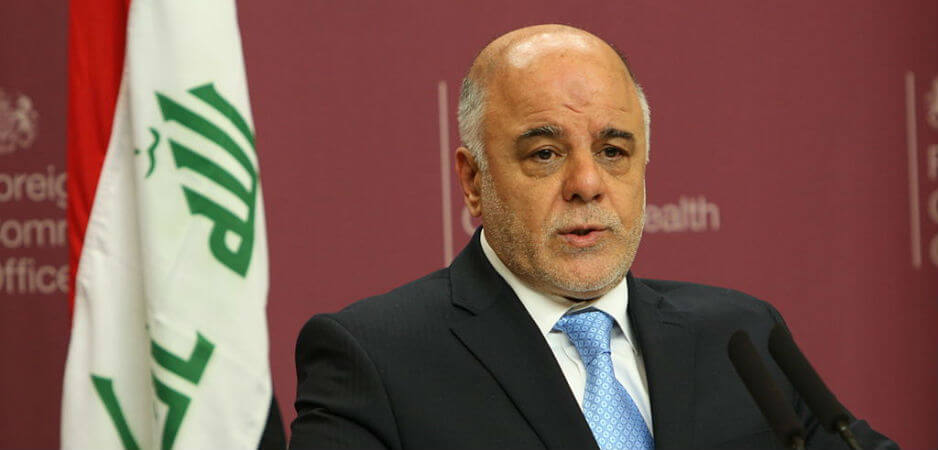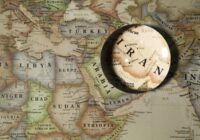Iraqi forces are on the offensive against IS militants, but the time has come to amend the constitution to prevent future radical groups from emerging.
Over the past couple of weeks, Iraqi security forces have had to battle Islamic State (IS) militants pretty much on their own—without the involvement of al-Hashid al-Shabi units—in the ongoing fight for Anbar province. So far, they have made marked advances in Ramadi, and they are standing their ground where it matters. Emboldened by the support of Iraqi and US-led coalition air power, the military is waging a spectacular comeback.
The national confidence in Iraqi forces is slowly but steadily gaining momentum. By contrast, IS, which boasts its terrorism on victory and expansion propaganda, is losing momentum. The group is increasingly losing not only its top leaders and field commanders, but also some of the territory it once administered.
This moral and material success is likely to embolden Iraqi Prime Minister Haider al-Abadi, who is the most popular national figure in Iraq, according to a recent poll by Greenberg Quinlan Rosner Research. In the same poll, sampled Iraqis were overwhelmingly displeased with the work of the government, especially regarding its failure to provide services.
They are right to be unhappy. So many intolerable conditions were painfully evident during my time in Iraq only a few months ago: roads had been blocked by powerful party-backed militias; garbage collectors left piles of filth to rot on the streets; major transportation arteries were clogged with hundreds of checkpoints—only a few of which actually performed a useful service; public employees were working three hours a day; a number of hospitals, bridges, public housing projects and schools were only structurally finished after being under contract for years; and, finally, existing schools had to accommodate the influx of students by shortening the school day to two hours. Iraqi state institutions are eroding.
Poor Governance
At the heart of it all, Iraq’s quota system institutionally empowers leaders along ethnic and sectarian lines. By prioritizing political-religious membership above qualifications, the governing structure has brought some of the most incompetent individuals into positions of power.
Everyday Iraqis understand that they are all victims of the system, and that the sole beneficiaries are Iraq’s leaders. While they may be disenfranchised on many levels, what unites a corrupt Sunni politician and a corrupt Shia politician, or a theologian-turned-politician, is the politics of sectarianism ingrained in the quota system. This point is often lost in the polarized debate surrounding Iraqi politics that is more likely to blame individuals, tribes and religious sects, while overlooking the deficiencies of the political arrangement itself.
If history teaches us anything, it’s that systematic bad governance, mismanagement, alienation, patronage and corruption would eventually lead to the rise of another radical group, even if the Islamic State were to be eliminated.
The problem in Iraq today is widespread and noxious, as an unfit system of governance and an ill-designed constitution invariably produce plights.
The post-2003 power-sharing scheme has led to unanticipated changes in the domestic political landscape. Exclusively sectarian constituencies vote parties in, giving rise to a system of institutionalized sectarianism. Corruption and other political ills follow inevitably from this set-up.
As such, what it takes to restore Iraq to normalcy is to uproot the arrangement known for engendering fragmented and inefficient local governments by incentivizing thinking along narrow, short-term and sectarian lines. What is needed instead is a system that incentivizes broader thinking and long-term visions for inclusion and prosperity. Citizens of all ethnic and religious affiliations need to feel a mutual sense of justice, political and social inclusion, and belongingness to a single nation.
A New Constitution
Abadi must capitalize on the victory in Ramadi, his growing popular approval, and religious backing by the influential Ayatollah Ali al-Sistani to initiate serious reforms to Iraq’s governing system. This may be the only hope for mitigating the country’s sectarian tensions and authority dysfunction.
Anything short of this is improper. If history teaches us anything, it’s that systematic bad governance, mismanagement, alienation, patronage and corruption would eventually lead to the rise of another radical group, even if the Islamic State were to be eliminated.
It is key to bear in mind here that institutionalized alienation of Sunnis—real or perceived—has given IS the ammunition it needs in its propaganda to portray the government as sectarian.
Some Sunni tribes and volunteers have shown a willingness to align with the government if it shows genuine will for inclusiveness, and some have already done so in Ramadi. The ability to maintain this momentum is a significant achievement. It provides a glimmer of opportunity for the future.
The international community has a role to play, and major world powers need to do their best to encourage a change in Iraq’s style of governance. The Obama administration, for example, can utilize its ongoing political, security and military communications with Iraqi leaders to demand the structure of the government be modified. The US should call for a change to the unconstitutional division of power among Shias, Sunnis and Kurds for the designations of prime minister, president, chair of parliament, cabinet ministers and heads of local municipalities, which are becoming mafia-style institutions.
Amendments to the constitution should follow a process of partial rewriting, offering it for a popular referendum in which all societal groups take part, unlike in 2005. These changes should then be ratified in a parliament where all Iraqis are meaningfully represented.
The views expressed in this article are the author’s own and do not necessarily reflect Fair Observer’s editorial policy.
Photo Credit: Foreign and Commonwealth Office
 We bring you perspectives from around the world. Help us to inform and educate. Your donation is tax-deductible. Join over 400 people to become a donor or you could choose to be a sponsor.
We bring you perspectives from around the world. Help us to inform and educate. Your donation is tax-deductible. Join over 400 people to become a donor or you could choose to be a sponsor.
Support Fair Observer
We rely on your support for our independence, diversity and quality.
For more than 10 years, Fair Observer has been free, fair and independent. No billionaire owns us, no advertisers control us. We are a reader-supported nonprofit. Unlike many other publications, we keep our content free for readers regardless of where they live or whether they can afford to pay. We have no paywalls and no ads.
In the post-truth era of fake news, echo chambers and filter bubbles, we publish a plurality of perspectives from around the world. Anyone can publish with us, but everyone goes through a rigorous editorial process. So, you get fact-checked, well-reasoned content instead of noise.
We publish 2,500+ voices from 90+ countries. We also conduct education and training programs
on subjects ranging from digital media and journalism to writing and critical thinking. This
doesn’t come cheap. Servers, editors, trainers and web developers cost
money.
Please consider supporting us on a regular basis as a recurring donor or a
sustaining member.
Will you support FO’s journalism?
We rely on your support for our independence, diversity and quality.






